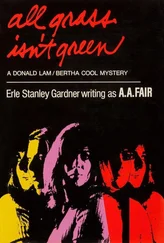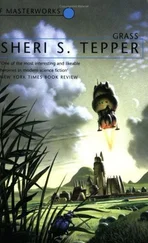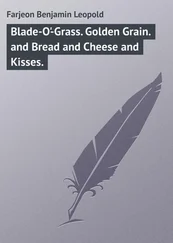The next item on the agenda was a stroll through the town, on Konny s suggestion. During their visit to the Schelfstadt, whose name recalls the reeds that once grew thickly along the banks of the lake on which it borders, the visitor was even shown, as if it were a special attraction, the brick shack with a tar-paper roof, located in a rear courtyard on Lehmstrasse, where Mother and I lived after the war; he was also shown the still crumbling and the already renovated half-timber houses in that picturesque quarter. Konny led David to all the sites and secret hiding places of my youth, as unerringly as though they had been his own.
After St. Nicholas's, the Schelfstadt church, which they viewed from the inside and outside, they of course had to take in the castle on Castle Island. There was no rush. My son made no attempt to hurry things along. He even suggested that they visit the museum next to the castle, but his guest showed no interest, grew impatient, was now intent on seeing the site in front of the youth hostel.
Nonetheless they took a break during their stroll through the town. At a Italian ice cream cafe each of them downed a good-sized portion of gelato. As the host, Konny picked up the tab. And David Stremplin is said to have talked amiably, but with ironic detachment, about his parents, a nuclear physicist and a music teacher. I am willing to bet that my son said not a word about his father and mother; but no doubt the tale of his grandmother's miraculous survival was important enough to be brought up.
Then the two bosom enemies, unequal in height — David tended more toward the horizontal, and was a head shorter — made their way through the castle park, passed the grinding mill, walked along Schlossgarten-allee, which had become an exclusive address, with villas spruced up in gleaming white, and then by way of Waldschulweg approached the scene of the crime, a fairly level area under trees. Initially there was no tension. David Stremplin is said to have praised the view of the lake. If a ball and rackets had been lying on the Ping-Pong table in front of the youth hostel, they might have played; Konny and David were both passionate about table tennis and would hardly have missed such an opportunity. Perhaps a quick volley over the net would have proved relaxing, and the afternoon might have taken a different course.
Then they were standing on historic ground, so to speak. Yet even the moss-covered blocks of granite and the fragment of the boulder with the chiseled rune and traces of a name did not provide sufficient pretext for a quarrel. The two even laughed in two-part harmony at a squirrel leaping from beech tree to beech tree. Not until they were standing on the foundation of the old hall of honor, and my son explained to his guest exactly where the large memorial stone had stood — behind the youth hostel, which had not been there in those days — only then, when he indicated the sight line for the granite boulder, and recited the martyrs name on the front of the stone and then, word for word, the three lines inscribed on the back, did David Stremplin allegedly say, “As a Jew, I have only this to say,” whereupon he spat three times on the mossy foundation — thereby, as my son later testified, “desecrating” the memorial site.
Right after that, shots were fired. In spite of the sunny day, Konny was wearing a parka. From one of its roomy pockets, the one on the right, he pulled the weapon and fired four times. It was a Russian-made pistol. The first shot struck the stomach, the following ones the head. David Stremplin tumbled backward without a word. Later my son made a point of saying that he had struck his victim as many times as the Jew Frankfurter, long ago in Davos. And like him, he went to the nearest telephone booth, dialed the emergency number, and reported his crime. Without returning to the scene, he set out for the police station, where he turned himself in with the words, “I fired because I am a German.”
On his way there, he saw a patrol car and an ambulance approaching, blue lights flashing. But help arrived too late for David Stremplin.
* * *
He, who claims to know me, contends that I don't know my own flesh and blood. Maybe it is true that I had no access to his innermost torture chambers. That I was not smart enough to decipher my son's secrets. Not until the trial began did I get closer to Konny — if not an arm's length away, at least within shouting distance — but I couldn't bring myself to call out to him on the witness stand helpful things like, “Your father stands by you!” or, “Don't lecture them, son. Cut it short!”
That's probably why a certain someone insists on calling me a “Johnny-come-lately father.” Everything that I try to crabwalk away from, or admit to in relative proximity to the truth, or reveal as if under duress, comes out, as he sees it, “after the fact and from a guilty conscience.”
And now that all my efforts have been stamped too late, he is combing through my messy piles of documents, this hodgepodge of note cards, and wants to know what became of Mother's fox stole. This postscript I still owe him seems particularly important to him, the boss; he tells me not to withhold any of the details I know, but to tell the story of Tulla's fox blow by blow, no matter how I hate that now unfashionable piece of clothing.
It's true. Mother owned one from the beginning, and still wears it. She was about sixteen, a streetcar conductor with a two-pointed cap and a block of tickets, doing her shift on lines 5 and 2, when, at the Hochstriess stop, she received a gift from a corporal who is another of my possible fathers: the complete fox pelt, already prepared by the furrier. “He came back wounded from the Arctic front, and now he was in Oliva on leave to recuperate,” was and is her shorthand depiction of the man who may have fathered me, for neither the sinister Harry Liebe-nau nor some immature Luftwaffe auxiliary could have come up with the idea of giving Mother a fox stole.
It was with this warm stole around her neck that she boarded the Gustloff when the Pokriefkes were allowed to get on. Shortly after the ship cast off, when the pregnant girl, leaning on a dreadfully young naval recruit, ventured onto the ice-coated sundeck, taking one step at a time, she was wearing the fur. The fox was close at hand, next to the life jacket, as she lay in the maternity ward and Dr. Richter gave her an injection, right after the third torpedo struck and the contractions began. And with nothing else — the rucksack was left behind — but the life jacket buckled on and the fox around her neck, Mother — who wasn't Mother yet — scrambled into the lifeboat and claims she had reached for the fox before the life jacket.
That was how she came on board the torpedo boat Löwe, shoeless but warmed by the fur. And only during the birth, which began soon afterward, that is, at the very minute when the Gustloff sank, first the bow and then capsizing to the port side, whereupon the cry of the countless thousands blended with my first cry, only then did the fur again lie next to her, rolled up. But when she left the torpedo boat in Kolberg, her hair having turned white at one blow, Mother might have been wearing only stockings as she carried her baby, but she had the fox, which no shock had bleached, wound around her neck like a choker.
She claims that during the long flight from the Russians she wrapped me in the fur to protect me against the bitter cold. Without the fox I would certainly have frozen to death in the horde of refugees backed up at the bridge over the Oder. I owe my life to the fox alone — not to the women with surplus milk. “Without that there you'd've been a lump of ice…” And the corporal who had conferred the fur on her — allegedly the work of a furrier in Warsaw — is said to have remarked in parting, “Who knows what it'll be good for someday, girl.”
Читать дальше











